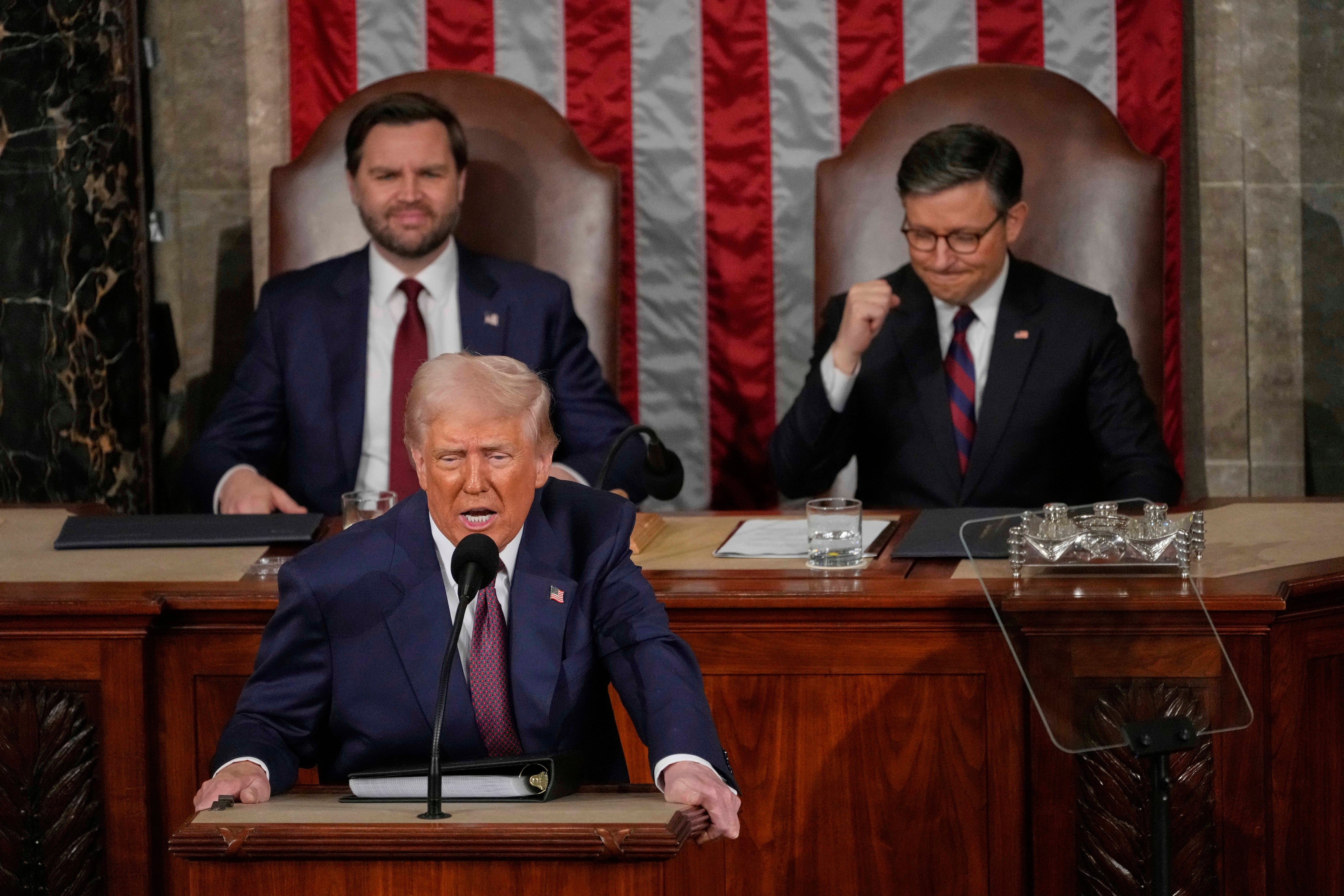WASHINGTON — The U.S. government is considering providing financial assistance for Boeing in light of the challenges posed by the coronavirus pandemic, President Donald Trump said Tuesday.
“We have to protect Boeing,” Trump said during a news conference at the White House. “We absolutely have to help Boeing. They were doing a job well, and all of a sudden this hits. So when the airlines aren’t doing well, Boeing’s not going to be doing well, so we’ll be helping Boeing, yeah.”
Boeing has found itself in financial disarray as a novel strain of coronavirus known as COVID-19 has worked its way across the globe, prompting countries including the U.S. to issue travel bans, flight restrictions and guidance instructing citizens to stay home and avoid traveling. The pressure on the airline industry has raised questions about whether planned orders for Boeing jets will ultimately come through.
The COVID-19 pandemic struck as Boeing struggles to get its bestselling 737 Max airliner back into operation with commercial airlines. The Max has been grounded since March 2019, after two plane crashes in less than a year resulted in more than 300 deaths.
Trump did not provide specifics on what sort of short-term funding could be made available to Boeing, whether its supply chain would also be eligible for assistance, or whether such a bailout will be needed to buoy Boeing’s defense business or other defense contractors. However, a financial boost for Boeing’s commercial side could hypothetically help insulate its defense products from company-wide pressures.
Byron Callan, an analyst with Capital Alpha Partners, noted that given the amount of money aerospace companies have spent on dividends in recent years, it would be politically difficult for any company right now to get a straight handout without taxpayers getting anything back. That may be particularly true for Boeing, coming off the very public 737 MAX issue.
As a result, he predicts some sort of shareholder pain would be involved in any buyout. But given the potential for commercial airlines to shutter in the coming months, Boeing’s issues may linger — and if they do, it could result in dramatic action from the company.
“In the most severe case, is this the event that finally puts Boeing’s defense business in play? If a year from now Boeing is still struggling and have to start selling assets off, it could lead to another restructuring in the defense world,” Callan said.
In his comments on Tuesday, Trump lauded Boeing despite recent difficulties.
“Boeing got hit hard in many different ways. Boeing never had a problem, for years they were an incredible — it was unthinkable what happened to Boeing. Probably I would consider it the greatest company in the world prior to a year ago. Then they got hit in 15 different ways,” Trump said.
“They have different management [now]. I’ve met the new people running Boeing, and I think it’s going to be outstanding,” he added, presumably referring to the company’s new CEO Dave Calhoun, who replaced Dennis Muilenburg in December.
Trumps comments come after the commercial arm of Boeing asked the government to make available “short-term access to public and private liquidity” to help sustain operations and get the airline industry back on its feet, according to CNBC.
Boeing has made no such pleas on behalf of its defense arm — at least publicly — and operations of its defense business appear to be continuing without major disruption.
“Boeing has issued updated guidance directing all employees who are able to perform their work from home effectively to telecommute until further notice,” said Larry Chambers, a spokesman for Boeing’s defense business. “Production continues at this time, and the company has enhanced cleaning procedures in work spaces, common areas and on high-touch surfaces.”
Valerie Insinna is Defense News' air warfare reporter. She previously worked the Navy/congressional beats for Defense Daily, which followed almost three years as a staff writer for National Defense Magazine. Prior to that, she worked as an editorial assistant for the Tokyo Shimbun’s Washington bureau.
Aaron Mehta was deputy editor and senior Pentagon correspondent for Defense News, covering policy, strategy and acquisition at the highest levels of the Defense Department and its international partners.




